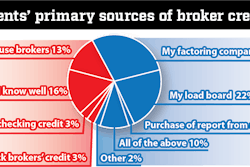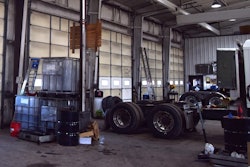If you've found this story, know that you're not the first carrier to have found yourself unpaid for loads hauled for a broker or freight forwarder that has gone broke or, in other cases, had no intention to pay to begin with. Sometimes, it's possible to still receive all or a portion of the unpaid freight bill from other parties responsible for payment.
1. What is the difference between a freight broker and a freight forwarder?
Both must be registered with the Federal Motor Carrier Safety Administration. While they often operate in similar ways, their legal responsibilities differ. A broker serves as an intermediary between the shipper or receiver and the motor carrier hauling the load. A broker is not liable for loss or damage to the freight and thus most often does not carry cargo insurance.
A freight forwarder, in its relationship with a shipper or receiver, is a carrier. Unlike a broker, a forwarder is responsible for loss or damage to the freight. In its relationship with a carrier, a freight forwarder has the status of a shipper. Think of a freight forwarder as a carrier without trucks or trailers.
The significance of this legal distinction is that a carrier hauling a load may look only to the shipper or receiver for payment. If the freight forwarder goes broke, the underlying motor carrier may not look to the freight forwarder's customer for payment.
[Related: Carriers' right to review what the shipper paid for a brokered load]









